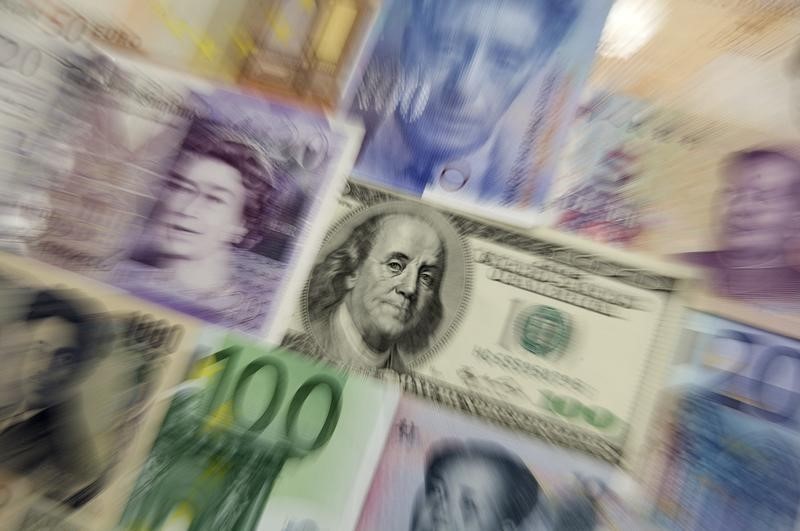* Euro hovers near 1-week highs versus dollar
* Lower U.S. debt yields put dollar on defensive against yen
* Sterling hobbles, kiwi steadies
By Shinichi Saoshiro
TOKYO, July 24 (Reuters) - The euro hovered near one-week highs against the dollar early on Friday as relief from Greece taking another step towards a bailout prompted bouts of short-covering, while lower U.S. debt yields put the greenback on the defensive versus the yen.
The euro stood steady at $1.0986 EUR= and within close range of a one-week high of $1.1018 struck overnight. The common currency was lifted after the Greek parliament approved a second set of reforms required to start negotiations with lenders in a bid to avoid bankruptcy.
Still, with the U.S. gearing up to hike interest rates later this year and with Greece's long-term ability to stay solvent still in doubt, analysts saw the euro declining in the long run.
"News from Greece helped, but fundamentally speaking euro/dollar remains on a downtrend in the long run. European economic indicators and inflation data are not as strong as they were at the start of the year, and of course the U.S. is steadily preparing to hike rates," said Shinichiro Kadota, chief Japan FX strategist at Barclays in Tokyo.
While the monetary divergence theme - the Federal Reserve has its sights on raising rates while the European Central Bank and Bank of Japan are still deeply committed to monetary easing - is widely expected to favour the dollar, the greenback hit a bump against the yen as well.
The dollar treaded water at 123.88 yen JPY= after failing to consolidate near an overnight high of 124.19.
The U.S. currency poked above 124.00 yen on Thursday after stronger-than-expected U.S. jobless claims but went on the back foot as Treasury yields fell to two-week lows on continued decline on Wall Street and deflation concerns prompted by sliding commodities.
Sterling hobbled at $1.5521 GBP=D4 after being peeled away from a one-week peak of $1.5671 on Thursday, when it sank 0.6 percent.
British retail sales fell unexpectedly in June, taking some of the lustre off the pound following signs that the Bank of England was edging toward hiking rates.
The New Zealand dollar, one of the biggest-moving developed economy currencies this week, showed signs of settling for now after jumping earlier this week when the Reserve Bank of New Zealand delivered a smaller rate cut than some had expected.
The kiwi has gone from a six-year low of $0.6498 NZD=D4 last week to a one-week peak of $0.6695 on Thursday and last stood little changed at $0.6615. (Editing by Eric Meijer)
